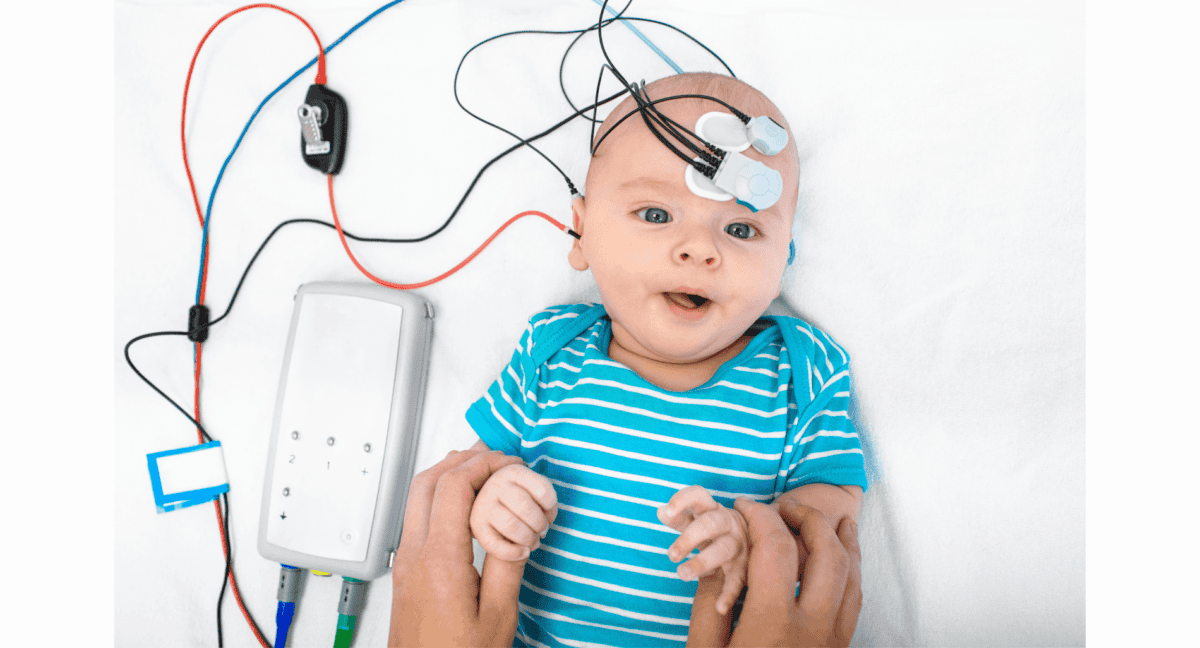- Volunteering for Hearing Health Causes - May 27, 2025
- Questions to Ask During Your Hearing Health Appointment - May 16, 2025
- Exploring Alternative Therapies for Hearing Loss - May 6, 2025
Imagine a hearing test that can peek into how the auditory parts of the brain and the auditory pathways are functioning. The Auditory Brainstem Response (ABR) Evaluation is just that—a window into the unseen activities of the auditory system. This test is often used for newborns, children, or individuals who cannot respond to traditional hearing tests.
Understanding Auditory Brainstem Response (ABR)
At its core, the Auditory Brainstem Response (ABR) Evaluation is a neurophysiological measure that tests the auditory system’s response to sound, all the way from the ear to the brainstem. This diagnostic tool can assess the function of the auditory pathway, without demanding any subjective response from the test subject. This means we can get information about hearing health without needing you to push a button when you hear a sound or let us know what you hear.
ABR testing is invaluable for testing infants, young children, or individuals with communication challenges.
The Significance of ABR in Auditory Health
ABR evaluations are more than just a hearing test. They play a role in the early detection of hearing loss, particularly in newborns and young children. Early identification of hearing impairments is important since hearing loss can impact language development, social skills, and educational success.
ABR testing can also help diagnose auditory neuropathy spectrum disorder (ANSD), a condition where sound enters the ear normally but is transmitted to the brain in a disorganized way. It can also detect other forms of hearing loss that could affect a child’s development.
How Does ABR Testing Work?
ABR testing involves a non-invasive procedure where the person being tested is usually lying still. Small adhesive electrodes are placed on the head, and earphones deliver sounds into the ears. The electrodes measure the auditory nerve and brainstem’s response to these sounds. The responses are then charted over time, and a hearing health professional interprets the results. This test can help determine the presence of a hearing impairment, its type, and severity.
Preparing for an ABR Evaluation
If your baby or young child is getting an ABR evaluation, they can be sleeping during the process. This makes it easier for us to get accurate readings and can make the testing process even easier for you and your family.
Depending on the age of your little one, you may need to wake your child early in the day so they will be tired and ready to fall asleep naturally when you arrive at our office. For infants, it could also involve adjusting feeding times so they’ll easily fall asleep during the test. We encourage you to bring comfort items, such as a favorite blanket or pacifier to help your little one fall asleep.
Interpreting ABR Results
The output of an ABR test is a series of waveforms. We review the timing of these waves to understand the auditory system’s health and functionality. Variations in these waveforms can indicate different types of hearing loss.
A normal test result means that sound is being transmitted effectively from the ear through the auditory nerve to the brainstem. Abnormal results might necessitate further evaluation or the initiation of early intervention strategies, depending on the age and clinical context.
ABR Test: Safety Considerations
ABR testing is a safe procedure for individuals of all ages, including newborns. Since the test is non-invasive, the risk associated with ABR evaluations is minimal. Care is always taken to ensure the comfort and safety of the person undergoing the test, making it a stress-free experience for parents and children alike.
ABR in Newborn Screening
In many places worldwide, ABR testing is part of the standard newborn hearing screening protocol. Detecting hearing impairments early can have a transformative impact on a child’s developmental trajectory. If your little one has hearing loss, getting the right treatment as early as possible can drastically improve outcomes in terms of speech and language development.
Book an ABR Evaluation
ABR testing is a trusted audiological assessment, especially for infants and young children. It offers detailed insights into the functioning of the auditory pathway and can help us detect hearing loss early on.
If you’re ready to learn more about your little one’s hearing health, schedule an ABR evaluation to find out more. Together we’ll discover how your child responds to sound and explore treatment options for hearing loss.

